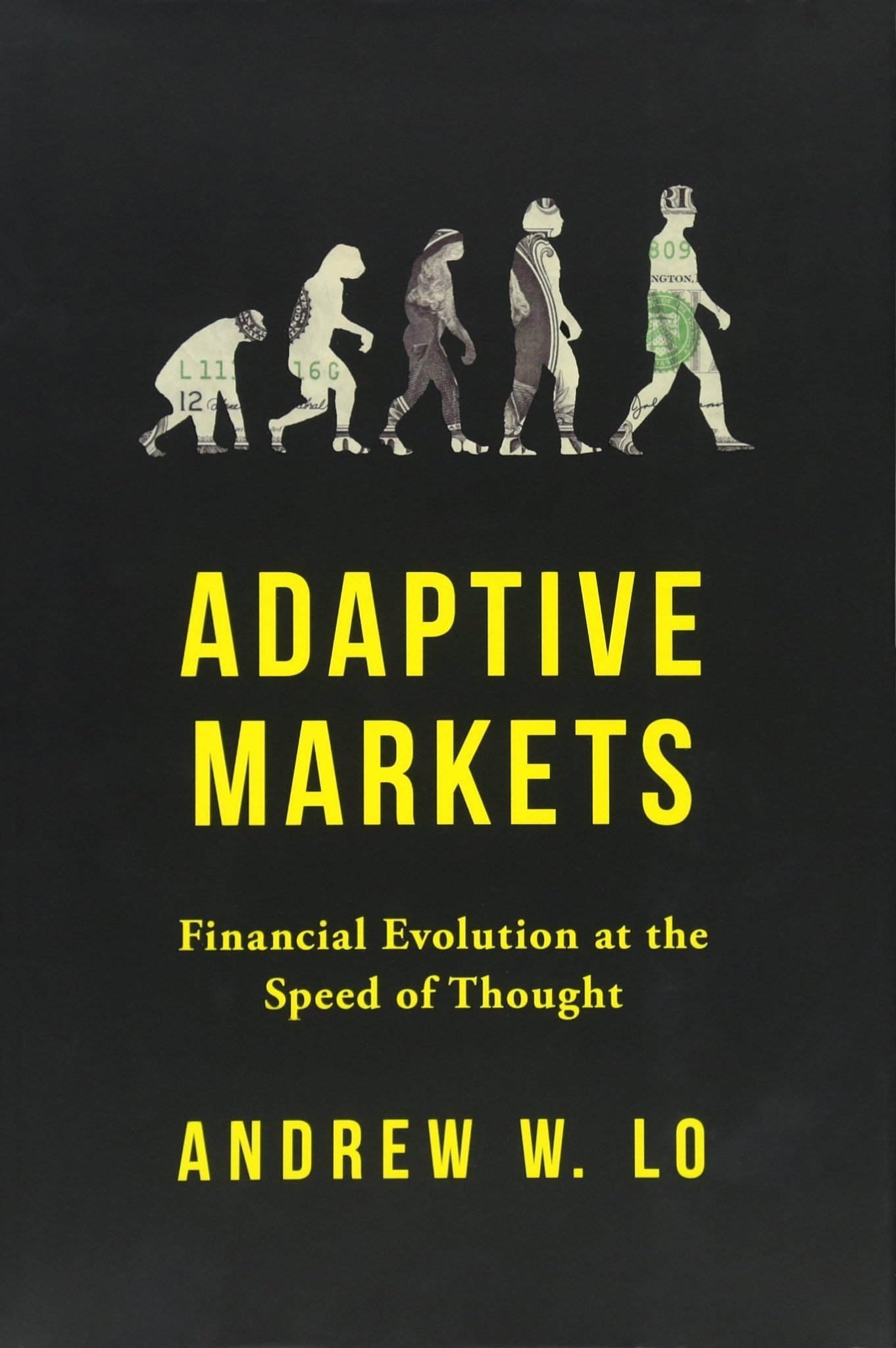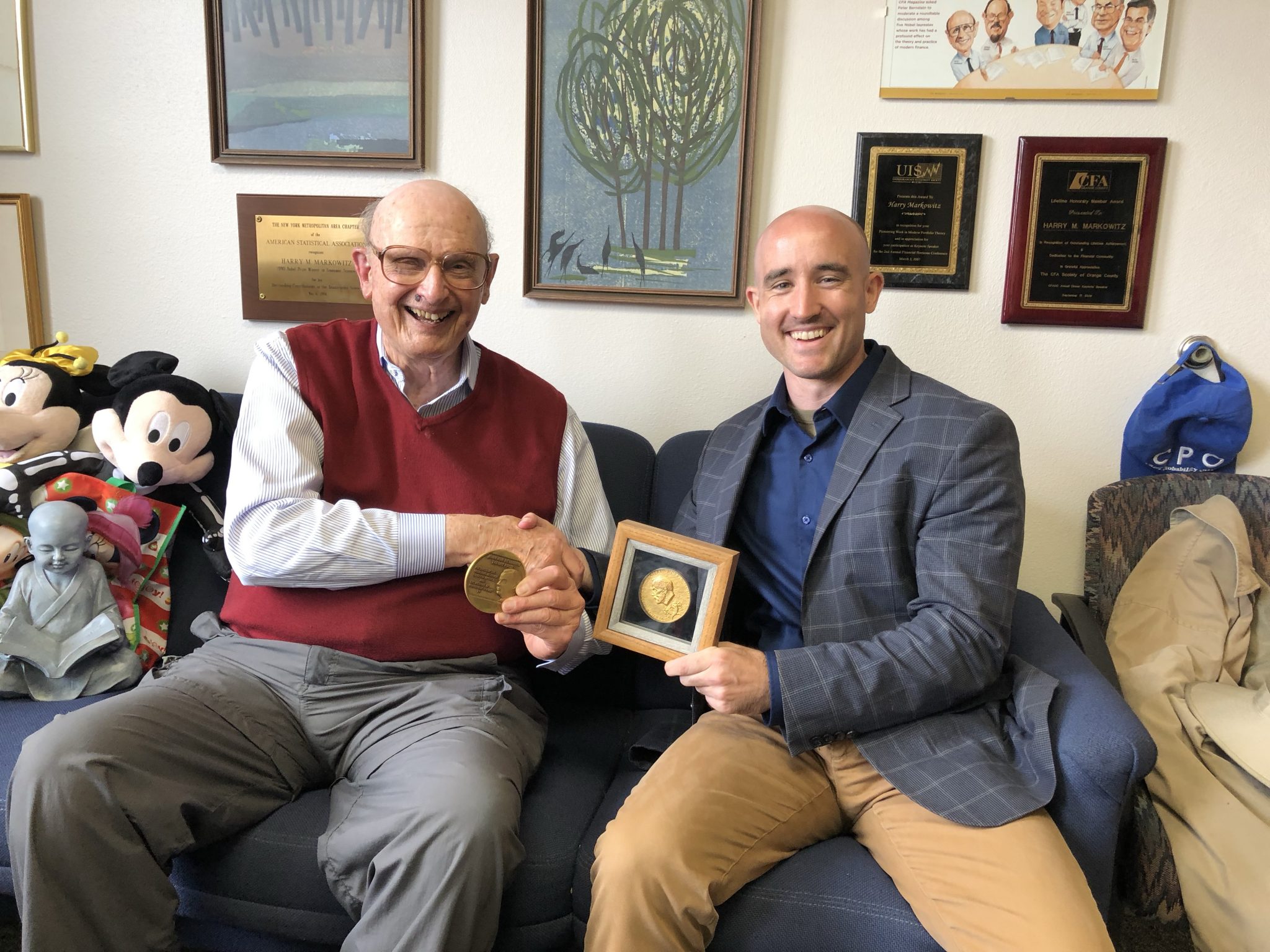The Hellhound of Wall Street – How Ferdinand Pecora’s Investigation of the Great Crash Forever Changed American Finance provides a narrative of the Senate hearings that followed the Great Crash. It is an interesting story for it’s lively details of the personalities involved but also illustrates how far our perceptions of the financial elite have come.
This historical account illustrates how prominent bankers were held in such high regard that they were inherently trusted by the public. That idea is laughable now, but was a crucial truth in the buildup and subsequent unraveling of American financial system of the 1920’s.
In this review I highlight some of the key points of the story. If you are interested in the history of the American financial system, and particularly the crash, this is a great book.
The Well-Driller and Wall Street
Peter Norbeck was tasked with investigating the short selling that Hoover blamed for the lack of economic growth after the recession. Hoover believed that “Wallstreet Gamblers” were consciously driving down the market in order to turn a profit at the cost of economic recovery for the rest of the nation.
The Best Cross-Examiner in New York
The Pecora family were Protestants from a region that had strong Catholic traditions and were ostracized by everyone including their own family. In America, where Ferdinand came at the age of four, Southern Italians were treated with a great deal of racism. Even the New York Times, in reference to a lynching of Italians in New Orleans, said, “…our own rattlesnakes are as good citizens as they.”
Pecora didn’t let this color him negatively, however.
His family story is the classic European immigrant tale of poverty, struggle, and cramped living conditions. He was drawn to the legal profession at an early age but was steered to Bard College for study to enter the Episcopal clergy.
In a twist of fate, he was able to leave Bard College and come home when his father was injured in a factory accident and left unable to work. Since he was the oldest surviving sibling, he came home to provide for his family. He took a job as legal clerk. Only because of this was he able to pursue further legal studies.
An anecdote from the book that helps illustrate Ferdinand Pecora’s character is the Malcolm Wright case…
Having ascended reluctantly to assistant district attorney in Manhattan, Ferdinand obtained a robbery conviction against Mr. Wright. However, Wright’s reaction to the verdict gave him an uneasy feeling. He believed there was a possibility that Wright was in fact innocent.
When he received a letter from Mr. Wright pleading for a meeting the next day, Pecora agreed. Believing that there was reason to suspect Wright had been railroaded, Pecora conducted his own investigation. He found that the police had in fact colluded with the accusers, and, having obtained their confession, was able to get a new trial for Wright. The jury acquitted him.
Sitting on the Lid
Norbeck offered the lead job to several people before Pecora. Had it not been for their dismissals or failures, Pecora would have never been offered the position.
A Short-term Job and Sunshine Charlie
Norbeck hired him to summarize the investigation that had already taken place. By itself, this wasn’t a very glamorous position. Pecora possibly took the job as a means to get back into government work which had been his passion, or possibly just to escape the monotony and boredom of his private practice. Either way, he took the job immediately and was on a train that afternoon to meet Norbeck.
He wasn’t content to just summarize the committees findings, however, and quickly expanded the investigation. The authorization allowed the investigative committee to take a very broad look at Wall Street but it had largely confined its search to short selling.
His first act was to subpoena the chairman of City Bank, Charles Mitchell. Unfortunately, Mitchell needed to be in Italy, and tried to delay his appearance until he was to return. This would have only given Pecora a few days to question him since authorization for the investigation was about to expire. He offered full access to the banks records in exchange for the delay. This turned out to not be a genuine desire to cooperate on Mitchell’s part. After discussions with the bank proved fruitless, turning openly hostile, Pecora denied Mitchell’s request.
Junior
Before Pecora could question Mitchell about City Bank he had to finish the Insull hearings. He had inherited the Insull investigation from Norbecks committee, and it would be a good warm up for the City Bank investigation.
Insull was an energy conglomerate that had misrepresented its own confusing securities in order to sell them to investors. At the onset of the hearings, it didn’t seem that Pecora understood what he was doing. He wasn’t able to clearly demonstrate an understanding of a stock syndicate or other basic mechanics of stock and bond markets.
This was concerning given the complexity of the upcoming City Bank heading. There were serious doubts about Pecora’s ability to handle such an investigation with so little understanding of investment banking.
Unimpeachable Integrity
Pecora learned from the Insull Hearing. He decided to focus the first day of the City Bank hearing and the interview with Mitchell on the integrity of the bankers.
He wanted to show that they were greedy and had acted selfishly in hurting so many of the banks customers that had relied on the banks status and assurances for deciding to purchase securities the bank was pushing.
On the first day of the hearing Pecora started slowly. This didn’t sit well with Senator James Couzens, a former partner of Fords, who decided to question Mitchell as well.
Incentives Matter…
The questions centered around the mechanics of selling securities at City Bank. Couzens and Pecora took a strong position that the sales incentives would unduly influence the banks executives and employees to push securities regardless of their suitability for the investors they sold them to. Mitchell calmly disagreed.
The bonus plan for executives structure was very similar to the way that hedge funds are structured today. Management received a percentage of the profits above 8%. Pecora specifically thought this was an incentive to take big risks with the bank capital because until the fund cleared that 8% hurdle, management shared none of the profits.
Pecora further detailed how top executives at the City Bank affiliate received part of that profit split in July, but did not return the money when the October crash meant that no profits would be had that year.
He dug into Mitchell about the disclosure of spreads on bond offerings as well. Mitchell adamantly maintained that the spread was a meaningless measure to the purchaser of securities. He compared it to the mark up on coffee at the grocery store.
“If I go in and buy a pound of coffee there is no indication as to what the grocer paid for it and what profit he got for it.”
Pecora didn’t buy it. He saw plainly the connection between the spread and the salesman’s incentive to push the security. He thought the public would too and would benefit from having that information.
Tax Evasion?
Possibly the biggest shock of the day was the revelation that Mitchell had incurred a dubious paper loss of 2.8 million dollars (by selling his stock to his wife) thereby shielding 2.8 million dollars from taxation.
Morale
The following day provided another revelation about Mitchell’s investment banking activities that didn’t paint a good picture of him.
Pecora’s first move was to expose some accounting sleight of hand. City Bank had made significant investments in the Cuban sugar industry (debt held by its own General Sugar Corporation) when sugar was $.22 per pound. When sugar fell to between $.02 and $.06 per pound, the loans became shaky.
Rather than write them off, Mitchell had City Bank issue securities and used part of the proceeds to buy General Sugar outright. General Sugar, in turn, paid off its debt. In effect, City Bank moved money from its left pocket to its right pocket in order to mask the trouble with the sugar loans.
From there, the mood in the hearing room was heated and confrontational.
Next on the witness stand was Gordon Rentschler, the president of City Bank. Pecora would treat him no more gently than Mitchell.
The executives of City Bank had been personally buying shares on margin (borrowing money to buy stocks). When the crash dramatically reduced the value of those shares the executives received margin calls hat they could not personally satisfy. The board of City Bank decided to loan, without interest, $2.4 million to the banks top 100 executives for the explicit purpose of satisfying the margin calls.
Of course, Rentschler didn’t appreciate the discussion or Pecora’s characterization of it as a “bail out”.
Legal Legerman
On the fourth day Pecora stayed on the topic of whether or not City Bank was manipulating its own stock price in violation of the National Bank Act.
He first questioned Baker who was very hesitant to answer questions. When he did answer, he only gave vague responses and generally claimed to not know anything about securities markets. Of course, he didn’t want to seem like he wasn’t capable of manipulating the banks stock.
Pecora did gain ground when he started questioning Mitchell about “day loans” made to J.R.Schmelttzer.
Although day loans were common and City Bank had made many of them, the loans to Schmeltzer were unique. J.R. Schmeltzer was a brokerage house that had been hired by National City Company to buy a large amount of City Bank stock. The question Pecora was interested in was whether this amounted to City Bank financing the purchase of its own stock?
Technically, Mitchell argued, it wasn’t. National City Company, an affiliate of City Bank, was directing J.R. Schmeltzer to buy the stock. City Bank was merely loaning money.
The organization of the affiliate required fancy legal footwork, and was blurry at best. City Bank did not own National City Company. Instead, the shareholders of National City Company placed their shares with trustees – who were all officers of City Bank. These officers ran the company on behalf of the shareholders. Pecora eloquently refers to this arrangement as a “hairsplitting triumph” of the corporations lawyers.
Intermission
Not everyone was happy the hearings were made such a spectacle, or that they were been being conducted at all. One of the fundamental tenets of a sound banking system is that depositors trust that system. When the security of the system is in question it becomes a self-fueling fire as depositors remove their money thereby making the system even less sound. This was not lost to the public and some questioned why the hearings would be taking place at such a poor time. The New York Evening Post wrote that the hearings had “done nothing to restore the public confidence” and had broken “the faith of the people in their financial leaders.”
Given the anti-Italian attitude that was more popular then, Pecora himself was the subject of much of the ridicule.
Newspapers often mentioned Pecora in terms of his anomalous characteristics given his Italian heritage. The imagery of a “Sicilian immigrant boy” going head to head with prominent Anglo-Saxon bankers made a good story.
What the hearings were able to do, however, was generate public interest. The Pecora hearings helped to highlight the status quo of the banking system which was a strong and unchecked concentration of financial power in the hands of a small class of elites. With such strong public interest Senators Edward Corsican and Duncan Fletcher, who would lead the committee in the new congress, successfully introduced resolutions to extend the investigations into the next session.
Both Mitchell and Hugh Baker resigned from City Bank. Mitchell did not to admit to any wrongdoing and instead suggested “public misunderstanding” was to blame.
South of the Border
With Mitchell’s and Baker’s resignations Pecora turned his attention to the practice of selling foreign bonds. Foreign bonds sales were a lucrative activity for the banks that participated due to their wide spreads. On many occasions the banks offered hefty bribes to the foreign issuers for the privilege of offering the bonds for sale to the public. Of course, the banks viewed these as innocent and necessary expenses of doing business in the foreign bond market.
Pecora wanted to show that the banks often pushed these bonds despite having knowledge that they were unsound. He paid particular attention to Peruvian bonds. Pecora wanted to know why banks pushed even these bonds when the credit worthiness of Peru was unquestionably shaky. Just a few short years before offering Peruvian bonds National City assessed the Peruvian treasury was “flat on its back and gasping for breath.”
Victor Schoepperle, one of National City’s experts on South American bonds, defended the issue. He explained that given the economic boom of the 1920’s the analysis of the time tended to be interpreted very optimistically.
The company continued to offer Peruvian bonds in 1927 and 1928, netting roughly $100 million in today’s dollars, despite analysts with the company believing a literal revolution was possible.
Shorn Lamb
On the eighth day of the hearings Pecora questioned Ronald Byrnes on some Brazilian bond offerings that he had overseen.
The issue concerned the use of the proceeds. Although the prospectus told the creditors that the loans would be used to “increase the economic productivity if the State”, some of the money had in fact been used to repay prior loans. In essence, the bond offering had been used partially to roll debts forward rather than make any actual progress.
The contention was that this use had not been properly disclosed. Pecora and Byrnes debated the issue. Byrnes defended the language of the prospectus based on a piece of legislation that was enacted shortly before the bond issue. When he let slip that his own counsel had been an integral part of writing the legislation, Pecora was not amused.
It didn’t stop there.
Next he brought George Train to the stand. In internal memos Train could not have spoken more poorly of the financial management of Minas Geraes, a Brazilian state where bonds had been issued. Despite this, the language he provided for the bond prospectus was that prudence had been characteristic of successive administrations.
Pecora grilled him over the obvious conflict of these statements. Train was unable to provide a clear retort and even admitted that National City was eager to underwrite the offering in order to keep competing firms from “chiseling in” to the market.
Lastly, he brought Edgar Brown to the stand. Brown was not a National City insider, but a customer. He put a very personal face on the fallout. He told his personal story of total loss and subsequent destitution. Having relied on the advice of his bankers he had sold everything he had and leveraged that even further to buy securities that National City recommended, and ultimately lost it all. His story helped drive the point home.
At the end of the day, congress decided to extend the authorization for the investigation.
A Free and Open Market
The ninth day of the hearings started with Horace Sylvester. The questions that morning revealed that Sylvester had taken $10,200 in cash, and expensed it to a bond offering by the Port Authority of New York, to give a personal loan to the Port Authorities general manager John Ramsey.
This loan was a bribe at worst, and misuse of funds at best. Despite their claims that it was indeed a loan and not a gift, National City couldn’t provide sufficient documentation to prove it. Two years after John Ramsey took the loan he had not made a single payment.
Self Regulation…
Richard Whitney, the NYSE president, was next. Although his initial statements indicated that he had changed positions since his last appearance he ultimately remained defiant on the subject of regulation. He didn’t believe that the government could effectively regulate crooked behavior.
Pecora wasn’t having it. Although the NYSE had the strictest listing standards, it seemed that it did nothing to ensure or enforce those standards. Literally, nothing.
There was considerable back and forth with Pecora asking about the NYSE enforcing its own standards. Whitney finally admitted that no steps were taken to check statements made my applicants for listing securities in the exchange.
In the words of Pecora, “the exchange proceeds on the assumption that nobody lies to it”.
The low point for Pecora that day was in his suggestion that Whitney should have warned the public in 1928 or 1929 that securities prices had climbed too high. Of course, the rub here is that nobody can know beforehand that prices are objectively and definitely “off”. It is also unknown whether they are likely to change if they are.
Regardless, Pecora showed that the exchange was either incapable of, or simply chose not to, regulating itself. Pecora had made the case for government regulation of securities markets.
The End of an Era
The last day of the hearings was far from the grand finale you might expect. In fact, it’s lackluster might very well have contributed to Pecora not even remembering it in his memoirs.
Pecora did bring Mitchell back to the stand. However, he only asked very unexciting questions and let him go without any particular struggle.
The only issue of consequence discussed that day was an offering of Boeing stock.
National City insisted that issues in a fledgling industry were too risky to be distributed widely amongst the public. The directors decided instead that they would absorb the entire issue themselves… being the sophisticated investors that they were.
The twist came when they decided to list the securities nine days later. They earned approximately 50% on their trade. Of course, if the investing public had participated in the initial offer, they could have earned that profit.
Pecora demonstrated once again that National City used its position to earn unfair profit by manipulating its position as a financial powerhouse. Perhaps it was because that fact had already been accepted that there wasn’t any more flair on the last day.
Depositors continued to panic.
Meanwhile, California declared a bank holiday. Arizona, which held many deposits from California banks, followed suit.
As depositors rushed to withdraw their money, some got creative. The customers at one bank allowed a lady to cut in line because she had her baby with her.
She quietly rented her baby to other ladies for $.25 until the teller pointed out that he recognized the baby.
Epilogue
Roosevelt took office and immediately began to work towards settling the financial turmoil. His success helped solidify public support for the financial reform to come.
He decided to retain Pecora to complete the investigations.
The president signed The Securities Act in May 27, 1933. The main thrust of the legislation is full disclosure of facts related to a securities offering. The president was deliberate in confining the scope of the legislation. He did not want to give the impression that the federal government was approving securities or making claims about future profitability.
Three weeks later, Roosevelt also approved the Glass-Steagall Act.
Pecora had no doubt been instrumental in the investigation. A fact that did not escape Norbeck as the investigation that he had spearheaded was now commonly referred to by Pecora’s name.
This certainly influenced Pecora’s feelings about his own future in the financial regulation world. Although he was appointed to a seat on the Securities and Exchange Commission, he was somewhat offended that he was not offered the chairmanship. He even threatened to resign.
Pecora went on to serve as a New York judge, and even made an unsuccessful run at mayor.
He died on December 7, 1941. Although he may have never achieved the fame he wanted, he made a lasting impression on Wall Street.







